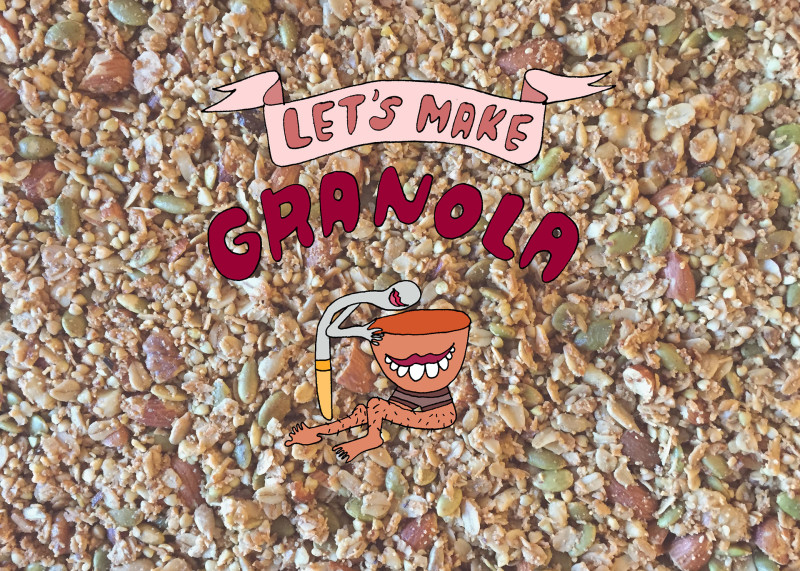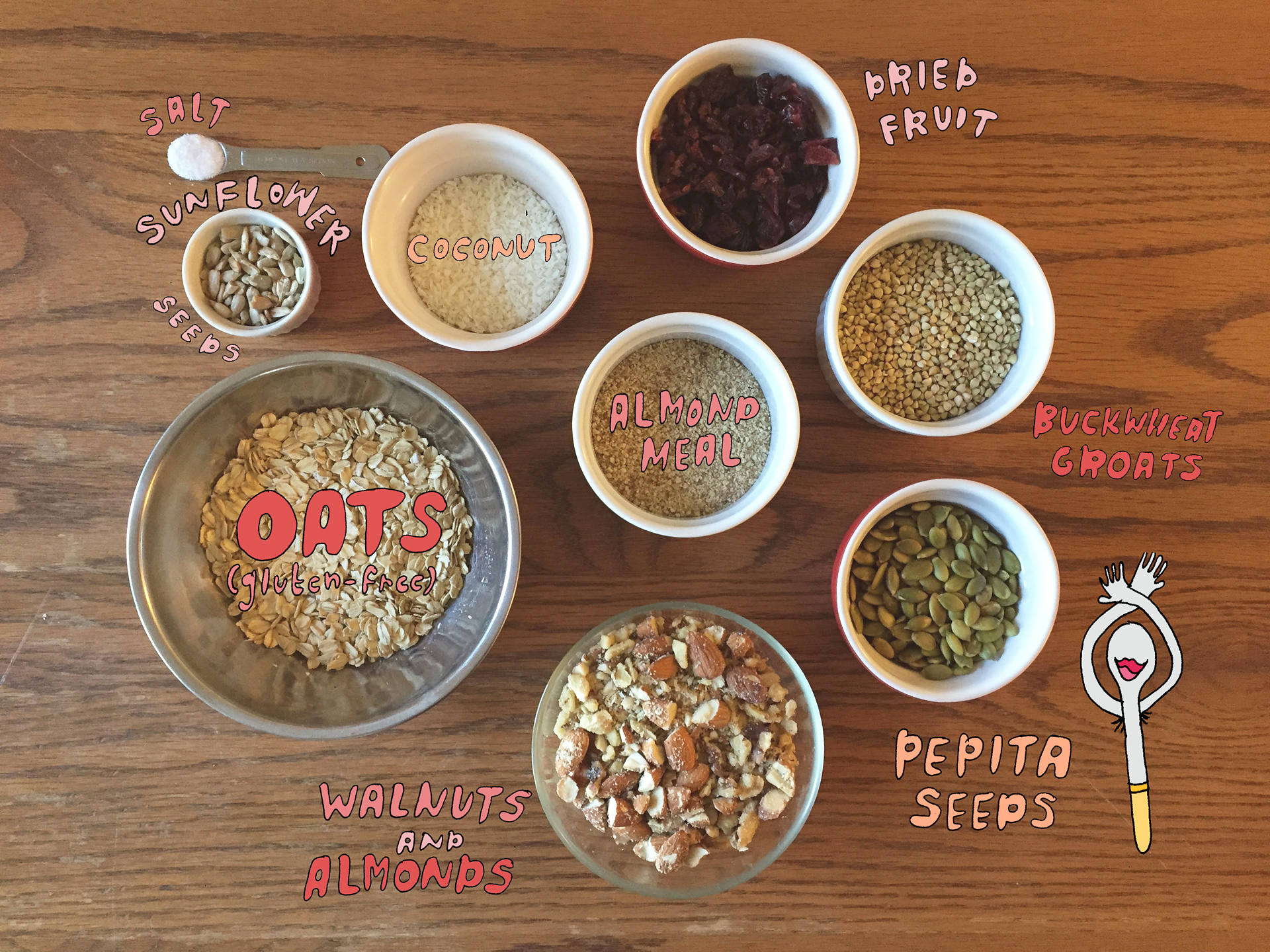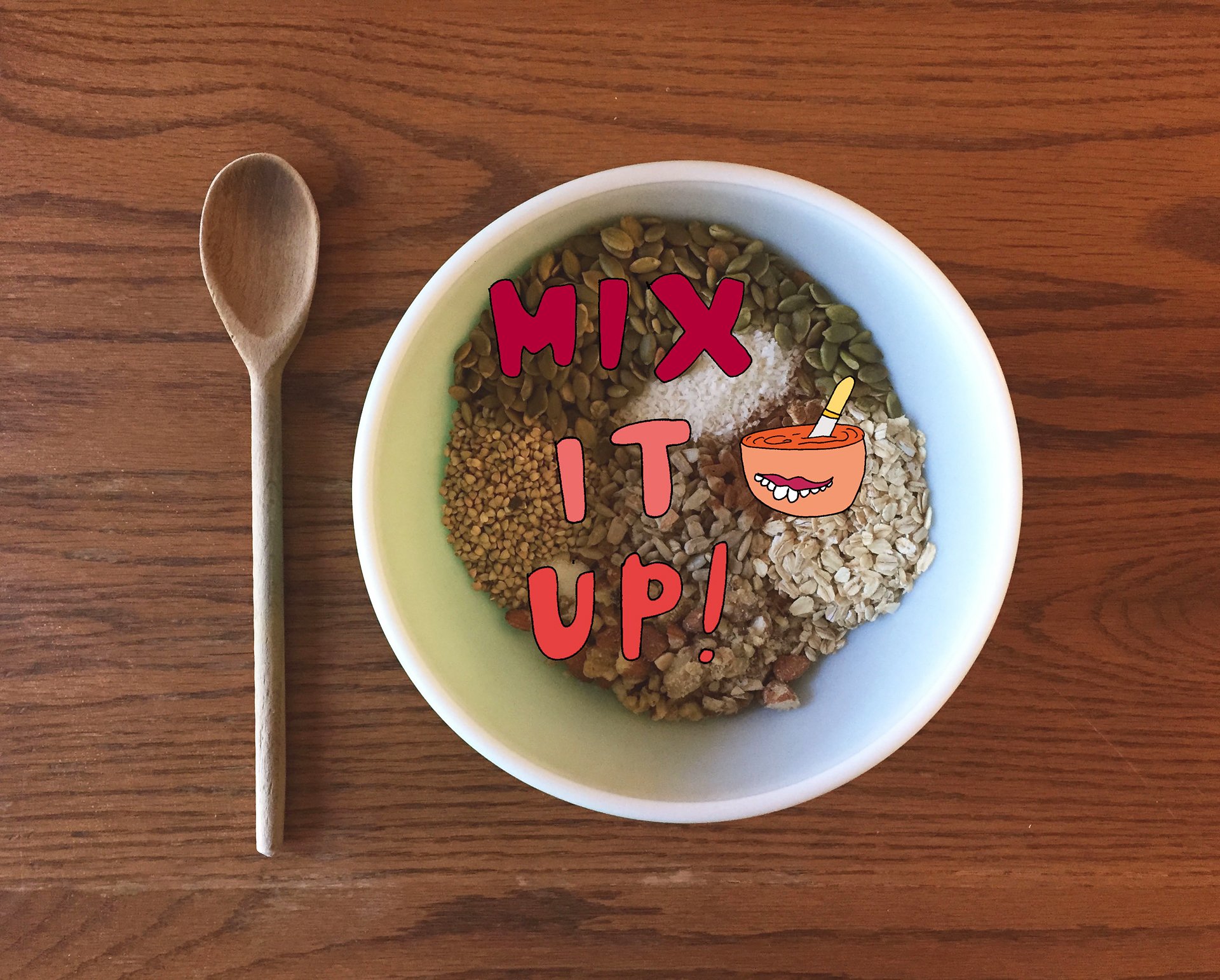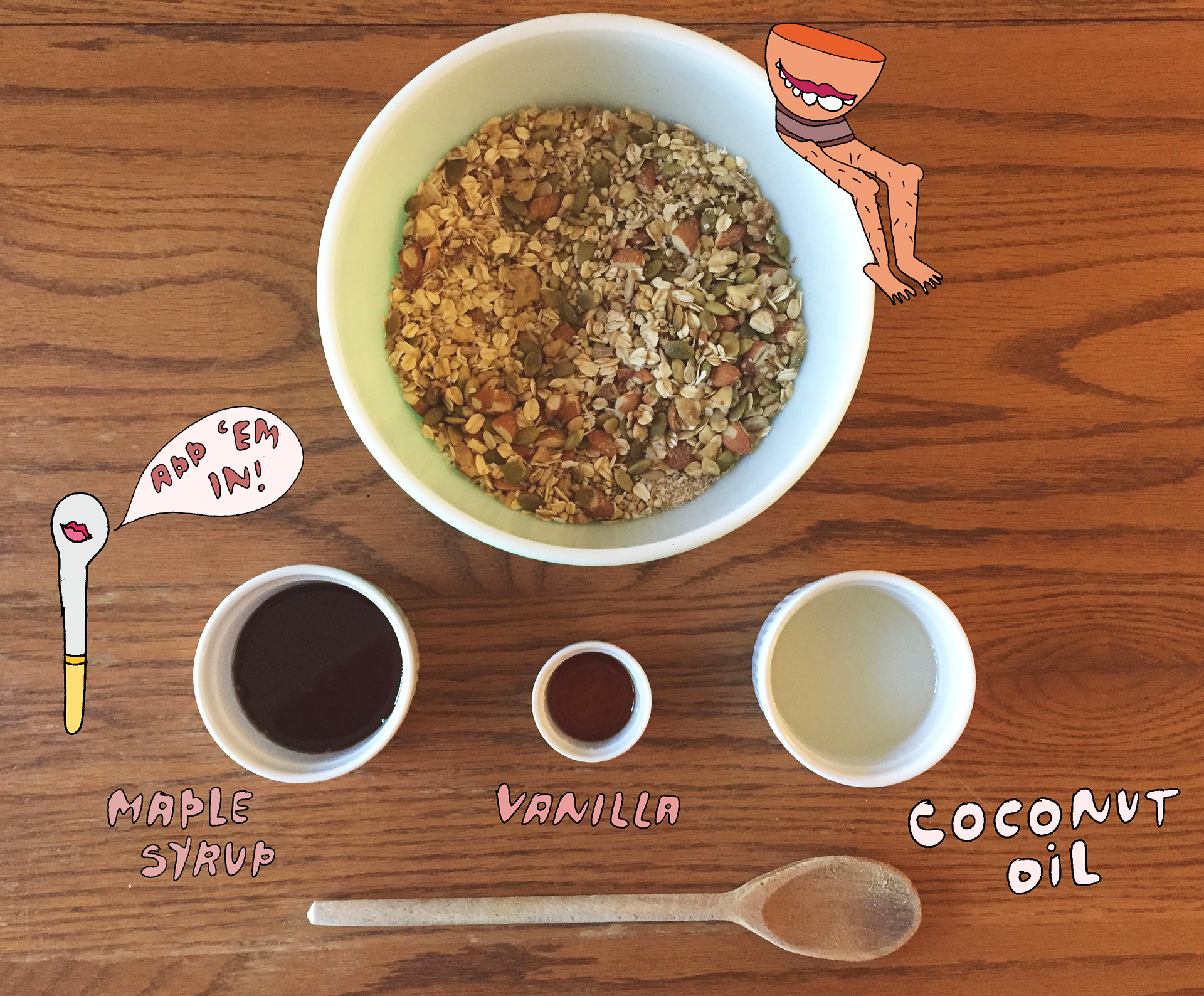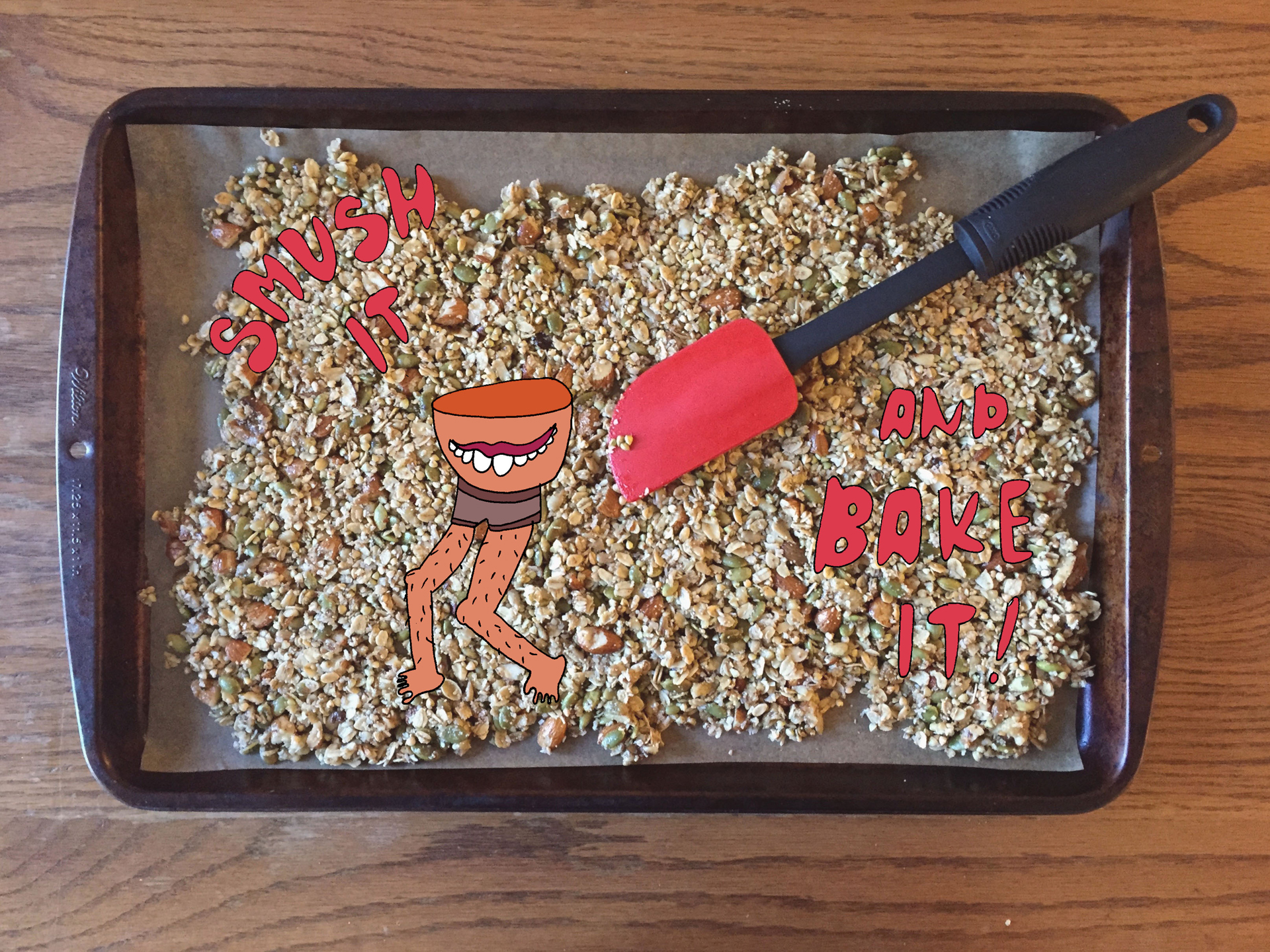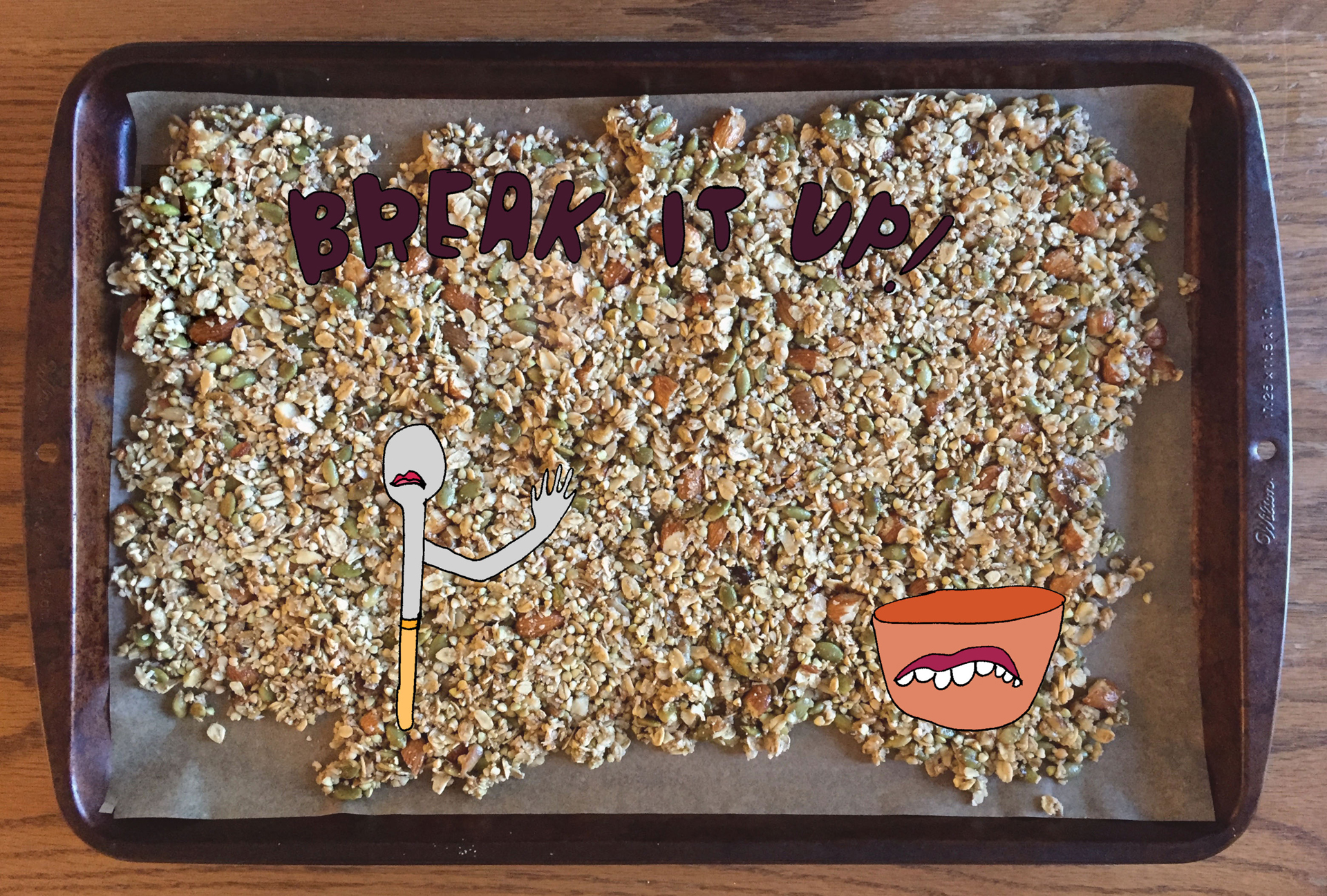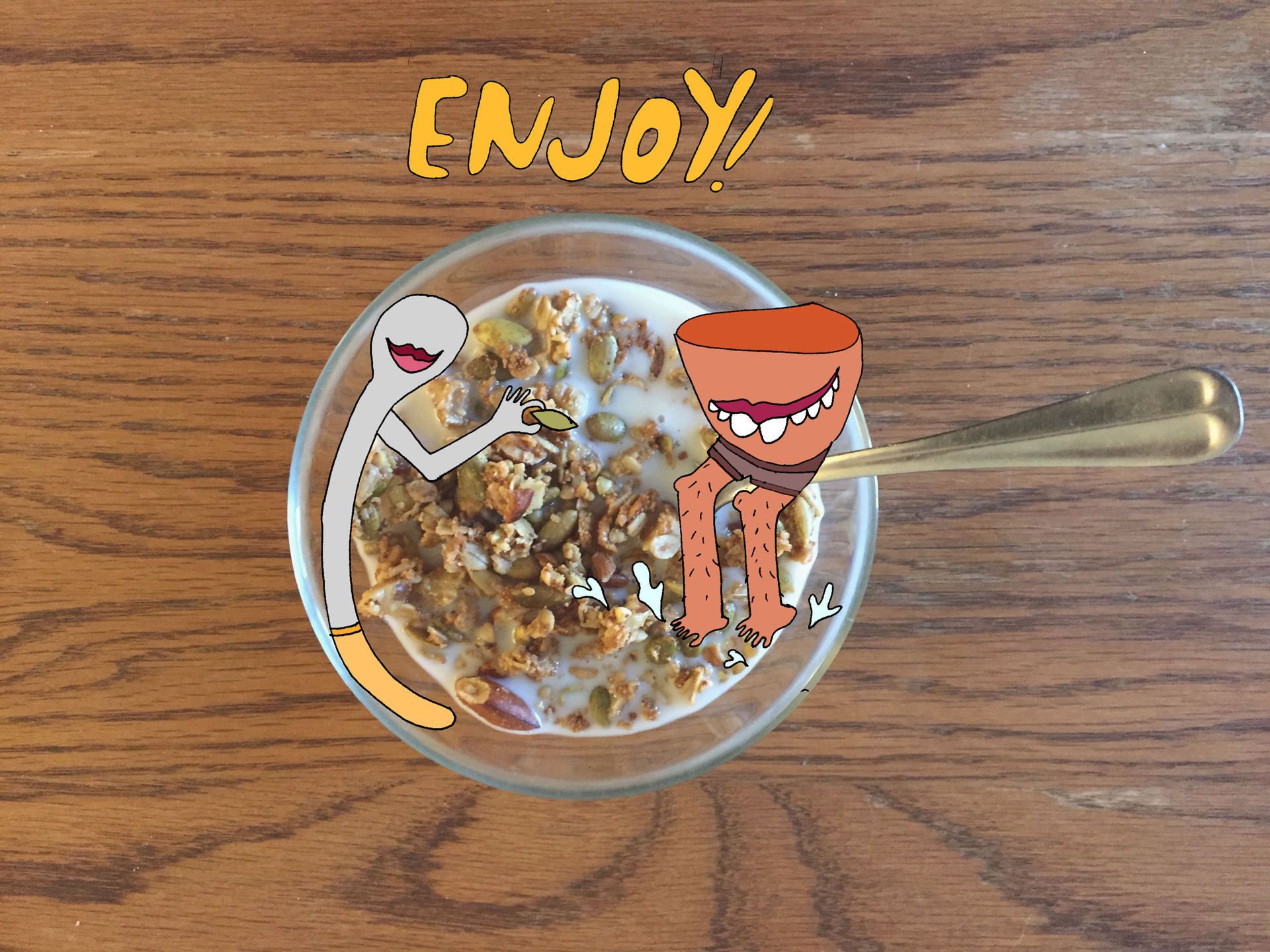Sitting at my table this morning, I dip my spoon into a bowl and scoop up a marriage of homemade granola and almond milk. Island-clusters of oats, nuts and seeds float lovingly in a creamy white ocean. While these two breakfast foods may have just met, they each have long histories that I am hungry to explore.
Almond Milk’s Religious Upbringing
While almond milk has appeared only recently on market shelves in its distinctive boxy tetra packs it actually dates back to the Middle Ages. It was valued for its accessibility (no cow needed) and longer shelf life compared to dairy milk. This vegan beverage makes an appearance in many Turkish and Indian dishes. It comes in handy for cultures where, during certain religious observances, animal products are forbidden. For example, in the Middle Ages, almond milk was commonly consumed during Lent.
Nut milk is so simple to make at home and is healthier than store bought options with all of their sneaky questionable additives, such as, carrageenan. I make it at home every week and use the leftover nut pulp to make granola thereby introducing these long lost lovers in a final embrace. To make DIY nut milk, check out Kate Williams' Homemade Nut Milks article.
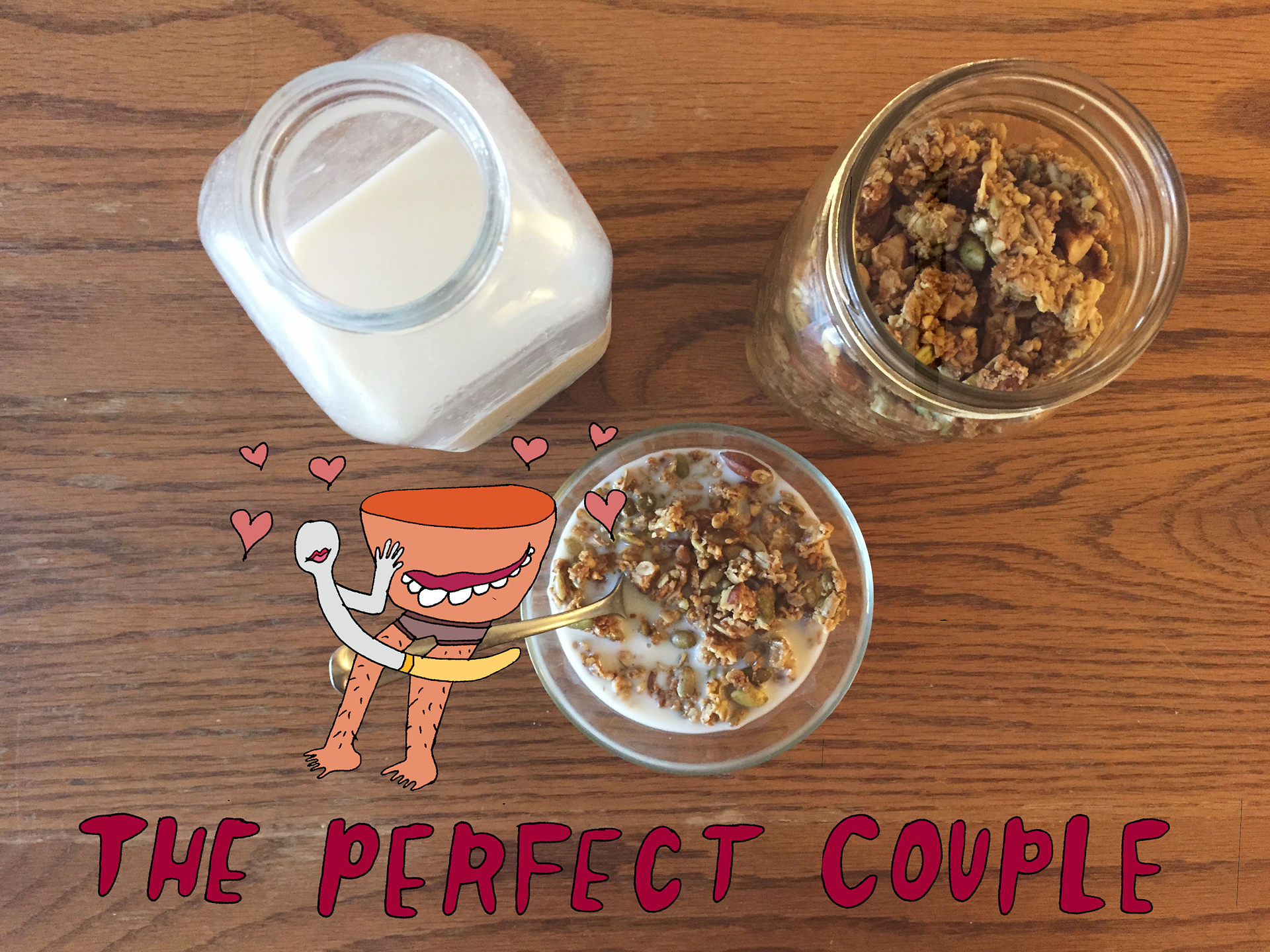
Granola By Any Other Name...
The other partner in my breakfast marriage, granola, has a shorter, but more dramatic history. Before granola there was “granula.” In 1861, Dr. James C. Jackson, a devout Christian Abolitionist, invented granula. This cold breakfast cereal was made of graham flour formed into sheets, baked, broken up and baked again. The resulting graham nuggets were so hard that they had to be soaked in milk to be edible. Dr. Jackson was the director of a “sanitorium,” a forerunner of modern day health spas. He combined his Christian faith with his passion for health in his granula, which he claimed would prepare consumers for the Second Coming (and even accelerate its arrival).
Then in 1898, Dr. John Harvey Kellogg created a similar breakfast food of whole grains, which were also baked and broken up into small pieces. He called his cereal granula too. Dr. Jackson threatened to sue Dr. Kellogg for stealing the brand name of his breakfast food, so Dr. Kellogg changed his name slightly to “granola.” Not long, afterwards Dr. Kellogg and his marketing-savvy brother created Kellogg’s Corn Flakes, whose success overshadowed its older sibling, granola.
